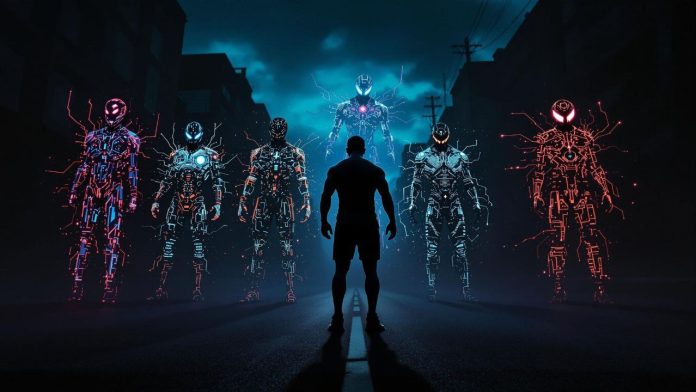There’s an old saying that people are the sum of the five individuals they spend the most time with. But let’s be honest—these days, most people spend more time with TikTok trends, YouTube rabbit holes, and Instagram’s explore page than with actual human beings. So maybe it’s time to update that saying: you are the sum of the five algorithms you spend the most time with.
Think about it. Who really has more influence over daily life: close friends or the almighty algorithm? One minute, it’s showing a video on healthy morning routines, and the next, it’s convinced someone they need to move to a remote cabin, start a side hustle, and learn five obscure productivity hacks. Algorithms are not just suggesting content; they’re curating your environment, shaping thoughts, and deciding what’s worth paying attention to—whether it’s a deep-dive into history or watching someone try to throw a ping pong ball into a cup for 10 minutes.
The Digital Mirror
Just as social circles influence worldview, the algorithms engaged with do the same. A feed filled with hustle culture, self-improvement gurus, and financial advice will push thoughts toward productivity and wealth-building. On the other hand, constant exposure to drama, gossip, and outrage can lead to increased anxiety, reactivity, and negativity.
These algorithms have essentially become modern mentors, peers, and thought leaders, shaping values, thought patterns, and self-perception.
The Algorithmic Echo Chamber
One of the biggest challenges in this digital reality is the echo chamber effect. Algorithms prioritize engagement, meaning they amplify existing interests. Watching one video on a conspiracy theory can suddenly flood a feed with similar content. Engaging with fitness videos can create the illusion that bodybuilding is the only relevant topic.
While this can be powerful, it can also be limiting. Unlike real-life friends who introduce diverse experiences and challenge perspectives, algorithms often reinforce the same ideas, narrowing viewpoints rather than expanding them.
Taking Control of the Digital Diet
Fortunately, just as individuals can be intentional about their social circles, they can also curate their algorithmic influences. Here’s how:
- Audit social media feeds: Identifying the dominant types of content can reveal whether they align with personal goals and values.
- Engage intentionally: Algorithms learn from user behavior, so interacting with content that adds value can shape a healthier digital experience.
- Diversify inputs: Following new creators, exploring different perspectives, and stepping outside of algorithmic comfort zones can prevent tunnel vision.
- Take breaks: Not everything has to be consumed through an algorithm. Books, real-life conversations, and offline experiences remain essential.
Social media and algorithms are not inherently harmful, but without mindfulness, they can shape beliefs, attitudes, and emotions in profound ways. It is crucial to consider whether these digital influences contribute to personal growth and well-being. After all, people are not just shaped by their friends and family anymore—they are also shaped by the algorithms they engage with the most.


